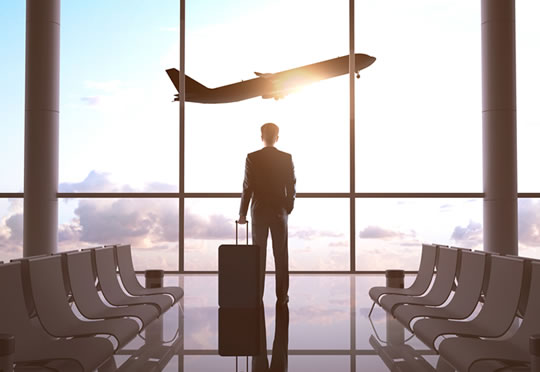The effect of frequent, long-distance travel on mental health.
Frequent, long-distance travel has been linked to high levels of stress and loneliness by new research.
This dark side to travel is in stark contrast to the way it is frequently represented by the media.
Dr Scott Cohen, the study’s lead author, said:
“A man in a sharp suit, reclining in a leather chair, laptop open in front of him, a smiley stewardess serving a scotch and soda.
This is often the image of travel, particularly business travel portrayed in TV ads and glossy magazines.
But there is a dark side to this ‘glamorised’ hypermobile lifestyle that the media, and society ignores.”
The research concluded that jet-setters were more likely to suffer health problems like deep vein thrombosis and radiation exposure.
However, there is little discussion of this darker side.
Dr Cohen said:
“The level of physiological, physical and societal stress that frequent travels places upon individuals has potentially serious and long-term negative effects that range from the breaking down of family relationships, to changes in our genes due to lack of sleep.
It is not only traditional media that perpetuates this image.
Social media encourages competition between travellers to ‘check-in’ and share content from far-flung destinations.
The reality is that most people who are required to engage in frequent travel suffer high levels of stress, loneliness and long-term health problems.
There are also wider implications for the environment and sustainability.
In this context, hypermobility seems far from glamourous.”
Dr Cohen concluded:
“Society needs to recognise that the jet-set lifestyle is not all it’s made out to be.
By striving to travel far, wide and frequently we are damaging the environment, ourselves and potentially our closest loved ones.”
The study was published in the journal Environment and Planning A (Cohen & Gössling, 2015).
Jetset image from Shutterstock

